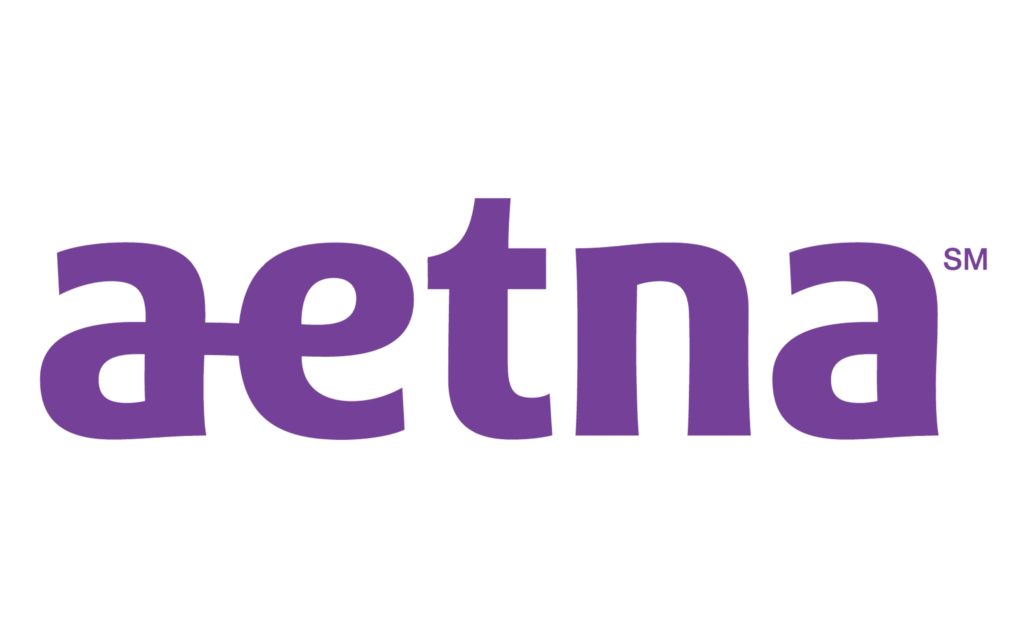Understanding Substance Use Disorders
Before diving into the realm of long-term recovery support for substance use disorder, it’s crucial to define what substance use disorders are and how to recognize their signs and symptoms.
Defining Substance Use Disorders
Substance use disorders, according to the American Psychiatric Association, are medical conditions characterized by the individual’s intense focus on the use of certain substances, such as alcohol or drugs, to the point where the consumption of these substances interferes with daily life activities. They are mental health disorders that range from mild to severe and can disrupt an individual’s ability to focus on their responsibilities at work, school, or home.
The term “substance use disorder” is a broad one, encompassing various substances, including alcohol, cannabis, hallucinogens, opioids, tobacco, and other drugs. Each type of substance use disorder has specific criteria for diagnosis but all share common characteristics, including cravings for the substance, inability to control its use despite harmful consequences, and ongoing use despite detrimental effects on one’s life.
Recognizing Signs and Symptoms
Recognizing the signs and symptoms of substance use disorders can be an essential first step in helping someone get the support they need. These signs can vary greatly depending on the specific substance involved, the duration of the individual’s usage, and their overall health status.
Common signs that someone might be struggling with a substance use disorder include:
- Changes in behavior, such as increased secrecy, changes in social circles, or sudden poor performance at work or school
- Physical changes, like weight loss or gain, unexplained injuries, poor personal hygiene, or unusual odors
- Psychological changes, such as increased agitation, mood swings, unresponsiveness, or appearing unusually energetic or lethargic
- Financial issues, like unexplained need for money, stealing, or financial instability
Recognizing these signs can enable individuals to seek help early, potentially preventing the progression of the substance use disorder and reducing the risk of severe health complications. Keep in mind that early intervention can significantly improve the likelihood of successful long-term recovery support for substance use disorder.
Importance of Long-Term Recovery Support
When addressing substance use disorders, it’s important to not only focus on initial treatment but also on long-term recovery support. Substance use disorder is a chronic condition that requires ongoing care and support to maintain recovery and prevent relapse.
Challenges of Substance Use Disorder
Substance use disorder presents unique challenges that can complicate the recovery process. It’s a chronic condition that often requires long-term management, similar to other chronic illnesses such as diabetes or hypertension. This can include ongoing therapy, medication, and support from peers and loved ones.
Moreover, individuals dealing with substance use disorder often face societal stigma and misconceptions, which can act as barriers to seeking help and maintaining recovery. They may also struggle with other concurrent issues, such as mental health disorders, financial difficulties, or legal problems, which can further complicate the recovery process.
Long-term recovery support for substance use disorder includes initiatives such as peer-based recovery support services, individualized recovery plans, and linkages to community-based services. These are essential components that can help individuals sustain recovery over time.
Role of Peer Support in Recovery
Peer support plays a crucial role in the recovery process. Peers, individuals who have experienced substance use disorder and are in recovery themselves, can provide a unique form of support, offering understanding, hope, and validation to individuals navigating the recovery process.
The Substance Abuse and Mental Health Services Administration (SAMHSA) provides resources for peers in recovery from substance use disorder to support long-term recovery efforts. Peers in recovery can access resources, training, technical assistance, and opportunities for collaboration through SAMHSA’s Recovery Support Project, which assists peers in achieving long-term recovery by promoting self-direction, personal responsibility, and empowerment.
Peer support groups are a key component of many existing addiction treatment and recovery approaches, such as the community reinforcement approach, therapeutic communities, and 12-step programs. These groups offer an augmentation to treatment that provides many benefits to individuals with substance use disorders, although they do not replace the need for formal treatments or clinical guidance (NCBI).
In conclusion, long-term recovery support is crucial in helping individuals with substance use disorder maintain their recovery and achieve a healthier, more fulfilling life. By understanding the importance of this support, and the role of peers in the recovery process, we can better aid those struggling with substance use disorder on their path to recovery.
SAMHSA’s Approach to Recovery Support
The Substance Abuse and Mental Health Services Administration (SAMHSA) plays an active role in providing resources and support for long-term recovery from substance use disorders. Let’s delve into SAMHSA’s programs and initiatives that address this issue.
Overview of SAMHSA’s Programs
SAMHSA’s Recovery Support Project is one of the key programs that provide resources for peers in recovery from substance use disorder. This project offers resources, training, technical assistance, and opportunities for collaboration.
The project assists peers in achieving long-term recovery by promoting self-direction, personal responsibility, and empowerment. The website serves as a platform for peers to access valuable tools and information to aid in their recovery journey from substance use disorder.
Long-term recovery support for substance use disorder includes initiatives such as peer-based recovery support services, individualized recovery plans, and linkages to community-based services. These are essential components that can help individuals sustain recovery over time.
Impact of SAMHSA’s Initiatives
SAMHSA’s Recovery Support Project emphasizes the importance of peers in providing support, hope, and validation to individuals navigating long-term recovery from substance use disorders.
Medicaid also plays a fundamental role in providing long-term recovery support for substance use disorder, with key services including case management, care coordination, and low-barrier access to medications for opioid use disorder (SAMHSA).
SAMHSA also advocates for the sustainability of long-term recovery support through collaboration between diverse stakeholders, including health systems, housing agencies, criminal justice systems, and peer recovery organizations, to address the complex needs of individuals in recovery.
The organization also values evidence-based practices, data-driven decision-making, and continuous quality improvement as crucial components of sustaining long-term recovery support services for substance use disorder (SAMHSA).
Lastly, SAMHSA has championed the implementation of recovery-oriented systems of care (ROSC) as integral to providing comprehensive, integrated, and person-centered support to individuals with substance use disorder, focusing on sustained recovery and improved quality of life.
In conclusion, SAMHSA’s approach to recovery support emphasizes the role of peers, collaboration, and evidence-based practices in promoting and sustaining long-term recovery from substance use disorders. These initiatives and programs are a testament to SAMHSA’s commitment to helping individuals overcome substance use disorders and live fulfilling, healthy lives.
Key Elements of Effective Support Groups
Support groups play a crucial role in long-term recovery support for substance use disorder. By providing a safe and supportive environment, they facilitate recovery by enabling individuals to discuss their experiences, learn from others, and develop coping strategies. Below, we delve into three effective types of support groups: Psychoeducational Groups, Skills Development Groups, and Cognitive-Behavioral Groups.
Psychoeducational Groups
Psychoeducational groups focus on educating clients about substance abuse and related behaviors and consequences. By providing structured, group-specific content, these groups aim to instill self-awareness, suggest options for growth and change, and guide individuals in recovery. The primary purpose of psychoeducational groups is to broaden awareness about the behavioral, medical, and psychological consequences of substance abuse and to motivate clients to enter the recovery-ready stage.
These groups often incorporate lectures, multimedia presentations, and group discussions to facilitate learning and engagement. By enhancing knowledge and understanding, psychoeducational groups empower individuals to make informed decisions about their recovery journey.
Skills Development Groups
Skills development groups focus on cultivating the skills necessary for achieving and maintaining abstinence. These groups teach specific skills related to substance use, such as refusal skills, coping with urges, anger management, problem-solving, and relaxation. The goal of these groups is to help individuals develop behavioral or cognitive resources to better cope in their environment and support their continued sobriety (NCBI Bookshelf).
Through practical exercises and role-playing scenarios, individuals can practice these skills in a safe and supportive environment. Over time, these new skills can become ingrained, serving as valuable tools in the recovery process.
Cognitive-Behavioral Groups
Cognitive-behavioral groups work to change learned behavior by modifying thinking patterns, beliefs, and perceptions. By focusing on cognitive restructuring as the basic methodology of change, these groups aim to identify conditioned stimuli associated with addictive behaviors, develop enhanced contingency management strategies, and promote awareness of behaviors that may lead to relapse. The ultimate goal is to change cognitive processes and develop social networks that support continued abstinence (NCBI Bookshelf).
Cognitive-behavioral groups typically adopt a structured approach, with specific topics and exercises for each session. Through this process, individuals can gain insights into their thought patterns and learn to replace negative thoughts and behaviors with healthier ones.
In conclusion, Psychoeducational Groups, Skills Development Groups, and Cognitive-Behavioral Groups each play a unique and critical role in long-term recovery support. By participating in these groups, individuals can gain the knowledge, skills, and mindset necessary to navigate their recovery journey and maintain abstinence.
Overcoming Barriers to Substance Use Treatment
An integral part of enabling long-term recovery support for substance use disorder is understanding and overcoming the barriers to treatment. Given the complexity of substance use disorders (SUDs), various challenges can hinder access to treatment and the efficacy of recovery support.
Identifying Common Treatment Barriers
Numerous factors contribute to the complexity of SUD treatment, including alternating periods of abstinence and use, high costs associated with substance use, and various impacts on a person’s life, making therapy challenging.
A comprehensive study identified three levels of barriers to SUD treatment: individual, social, and structural. These include:
| Level | Number of Barriers |
|---|---|
| Individual | 21 |
| Social | 19 |
| Structural | 37 |
This table highlights the significant diversity and number of barriers that can prevent individuals from seeking or receiving effective SUD treatment.
Strategies for Overcoming Barriers
Healthcare providers and policymakers face challenges in addressing these barriers due to their diverse nature. Over four decades of research underlines the need for a comprehensive approach to understanding and addressing these obstacles to improve intervention strategies (PubMed).
The same study that identified these barriers also outlined several facilitators to SUD treatment at the individual, social, and structural levels. These facilitators can be leveraged to overcome the identified barriers:
| Level | Number of Facilitators |
|---|---|
| Individual | 3 |
| Social | 9 |
| Structural | 15 |
These facilitators provide potential strategies for overcoming the barriers to SUD treatment, emphasizing the importance of a multi-level approach to improving access to treatment and enhancing recovery outcomes.
The high cost of SUD treatment is a significant barrier. In 2003, the projected overall cost of substance use treatment in the United States amounted to $21 billion, 77% of which was funded by public sources. Strategies to address this could include advocating for increased public funding, implementing cost-effective treatment models, and providing financial assistance programs for individuals seeking treatment.
The treatment gap, where the ratio of untreated to treated individuals with SUD can range from 3:1 to 13:1, is another critical issue to address. This underscores the need for improved access to treatment, which could be facilitated by expanding existing services, improving outreach programs, and promoting early intervention strategies.
In summary, overcoming barriers to SUD treatment is a complex but crucial task. The strategies discussed aim to enhance the effectiveness of long-term recovery support for substance use disorder, highlighting the necessity for an integrated, multi-faceted approach to ensure individuals can access and benefit from appropriate treatment.
Tailoring Treatment to Rural Communities
Providing long-term recovery support for substance use disorder in rural settings requires a unique approach. The challenges and barriers in these communities often differ from those in urban areas, necessitating tailored solutions.
Challenges in Rural Settings
Rural communities face distinctive obstacles in developing programs that prevent and treat substance use disorders (SUDs). Limited resources, fewer treatment facilities, and geographical isolation are among the challenges that impact the delivery of comprehensive care in these settings (Rural Health Information Hub).
In a qualitative study involving rural healthcare providers, participants underscored the difficulties faced in providing care for SUDs in rural communities. Likewise, substance abuse treatment counselors have also recognized barriers in both rural and urban areas, with unique challenges in rural regions when individuals seek help for substance use disorders.
Rural areas often have fewer substance abuse treatment facilities, services, and inpatient/residential beds compared to urban areas. This lack of resources poses a significant challenge for individuals seeking treatment for substance use disorders in these communities.
Strategies for Rural Substance Use Treatment
Addressing substance use in rural settings requires strategies that are specifically tailored to these communities. Leveraging rural assets can play a critical role in preventing substance use and providing effective long-term recovery support for substance use disorder.
One strategy is to utilize local resources, such as community centers, churches, and schools, to host prevention and treatment programs. These venues can provide a familiar and comfortable environment for individuals seeking help, thereby reducing the stigma associated with substance use treatment.
Another strategy is to implement telehealth services for substance use treatment. Telehealth can help overcome geographical barriers by providing virtual counseling and therapy sessions, making it easier for individuals in remote areas to access the help they need.
Lastly, it’s important to engage the entire community in substance use prevention efforts. Community-based initiatives can help raise awareness about the dangers of substance use and the availability of treatment options. By fostering a supportive environment, rural communities can help individuals struggling with substance use disorders feel less isolated and more hopeful about their recovery process.
By leveraging these strategies, rural communities can effectively address substance use and provide the necessary long-term recovery support for individuals with substance use disorders. While the challenges are significant, with concerted effort and a tailored approach, it’s possible to make a meaningful difference in these communities.










